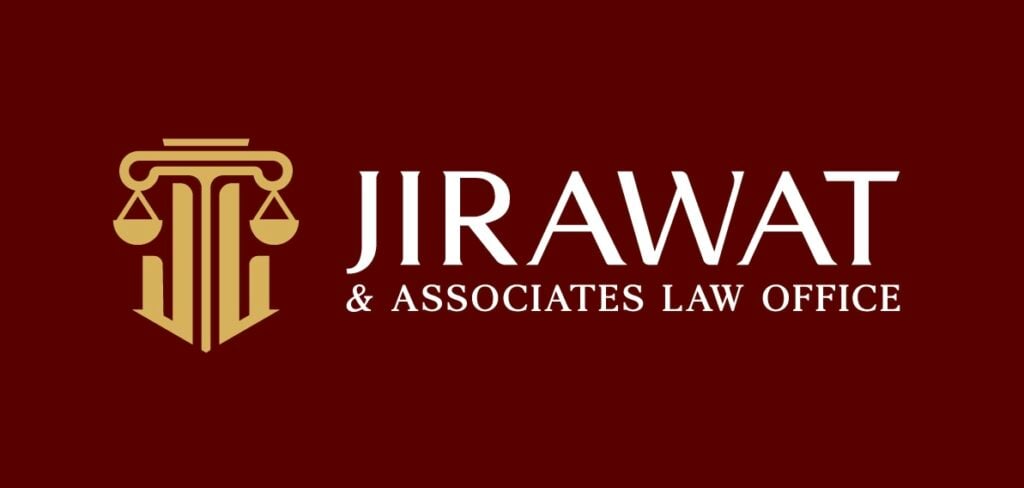

Since 2010, the Global Law Experts annual awards have been celebrating excellence, innovation and performance across the legal communities from around the world.
posted 5 months ago
This period of transformation is marked by numerous significant legal and regulatory changes impacting the practice area, necessitating an adept understanding of both established principles and emerging trends.
A central issue currently shaping the landscape of administrative law in Thailand is the government’s expansive prerogative to unilaterally terminate administrative contracts. This principle, primarily derived from the jurisprudence of the Supreme Administrative Court, illustrates the predominance of judicial interpretation over comprehensive statutory frameworks. Administrative contracts, which are fundamental to public-private partnerships in vital sectors such as public services and utilities, represent a domain where government agencies wield considerable discretionary authority amid scant legislative direction. This legal ambiguity is indicative of the challenges and opportunities practitioners face when advising clients on contract enforcement, dispute resolution, and understanding the limits of state authority within this critical sector.
As Thailand grapples with these ongoing complexities, recent advancements in related legal areas have further implications for administrative practice. The establishment of specialized tax courts under the Tax Court Act No. 3 (2025) exemplifies a broader trend towards enhanced judicial specialization and procedural refinement within the Thai legal system. Such developments influence litigation strategies in administrative law, particularly where tax and customs regulatory issues intersect with governmental operations. The emergence of these specialized courts necessitates that practitioners adapt swiftly to shifting judicial expectations and enhanced procedural guidelines.
Concurrently, the introduction of the new anti-SLAPP (Strategic Lawsuits Against Public Participation) law under the Organic Act on Anti-Corruption in 2025 reflects a growing governmental commitment to transparency and accountability. This law strengthens protections for whistleblowers, establishing a more robust framework for advocacy regarding governmental misconduct. Such initiatives not only enhance the landscape of administrative enforcement but also shape compliance frameworks, influencing how stakeholders engage with public authorities.
Moreover, the ongoing scrutiny surrounding the regulation of the nonprofit sector is evidenced by proposed legislation tightening governmental oversight of civil society organizations. This approach underscores a trend moving toward greater state control and highlights the critical impact on administrative law as it intersects with regulatory compliance and the judicial review of governmental actions. As governmental powers expand in monitoring and directing civil society, the need for expert legal counsel becomes paramount.
Navigating the myriad challenges inherent in this dynamic environment, administrative law practitioners must contend with the delicate balancing act of preserving state prerogatives while safeguarding private sector interests. The complexities associated with broad discretionary powers, often articulated through loosely defined statutory language, add further layers of difficulty. In an age where governance models are rapidly evolving—particularly with the integration of artificial intelligence and enhanced digital processes—there exists an urgent demand for nuanced legal expertise to adequately support clients facing government agencies.
Jirawat Leelawanich’s extensive background and astute understanding of Thailand’s administrative legal framework position him as an invaluable asset to stakeholders seeking guidance through these intricate challenges. His proficiency in navigating the evolving jurisprudence within the administrative law arena equips clients with the insights necessary to manage regulatory risks effectively and resolve administrative disputes with confidence.
In summary, as Jirawat Leelawanich embarks on this new chapter within the realm of administrative law, his contributions are set to reinforce the importance of legal expertise amid Thailand’s continuous regulatory evolution. The interrelationship between legislative updates, judicial interpretations, and the intricate landscape of administrative practices will undoubtedly benefit from his strategic understanding and extensive experience. As the legal community looks forward, the insights garnered from thought leaders like Leelawanich will prove invaluable in charting the future of administrative law in Thailand.
Author


No results available
posted 9 hours ago
posted 22 hours ago
posted 22 hours ago
posted 1 day ago
posted 1 day ago
posted 1 day ago
No results available
Find the right Legal Expert for your business
Global Law Experts is dedicated to providing exceptional legal services to clients around the world. With a vast network of highly skilled and experienced lawyers, we are committed to delivering innovative and tailored solutions to meet the diverse needs of our clients in various jurisdictions.

Thinking of buying property in Brazil? Start with a full legal safety net.
✔️ Check title and ownership history
✔️ Verify no debts or disputes
✔️ Confirm zoning and permits.
#BrazilProperty #RealEstateInvesting #LegalDueDiligence #ForeignInvestment #PropertyLaw #GlobalRealEstate #InvestmentRisk #BrazilLaw

When your international business faces financial distress, quick action is key! 🔑 Negotiating with creditors, restructuring debt, and understanding insolvency laws can help regain stability. Global Law Experts is here to guide you through your options.
🌍Explore the details on our website.
🔗Link in bio
#GlobalLawExperts #CommercialLaw #BusinessLaw #LegalAdvice #BusinessGrowth #LegalTips #BusinessStrategy #LegalCompliance #Law #LegalKnowledge #LegalAwareness #Law101 #LegalEducation #IntellectualProperty

Thinking of buying property in Brazil? Don’t stop at the contract or key handover. Make sure the title is officially registered before calling it yours.
#BrazilRealEstate #PropertyLaw #GlobalInvestment #ForeignInvestors #LegalTips #DueDiligence #RealEstateRegistration #SecureInvestment

Getting a termination notice right now? Know your rights. Valid reason, fair process, proper notice they matter. Don’t let a bad dismissal walk away without accountability.
#EmploymentLaw #WorkerRights #Termination #LaborLaw #FairDismissal #WorkplaceJustice #LegalAwareness #GlobalWorkforce

Running a business is hard enough — lawsuits shouldn’t make it harder. 🚫 Protect your business with the right legal strategies and expert tools from Global Law Experts. Let’s secure your future together! 💼
🌍Explore the details on our website.
➡️www.globallawexperts.com
#GlobalLawExperts #CommercialLaw #BusinessLaw #LegalAdvice #BusinessGrowth #LegalTips #BusinessStrategy #LegalCompliance #Law #LegalKnowledge #LegalAwareness #Law101 #LegalEducation #IntellectualProperty #Infringed #Ecommerce #LegalBranding
Global Law Experts is dedicated to providing exceptional legal services to clients around the world. With a vast network of highly skilled and experienced lawyers, we are committed to delivering innovative and tailored solutions to meet the diverse needs of our clients in various jurisdictions.

Thinking of buying property in Brazil? Start with a full legal safety net.
✔️ Check title and ownership history
✔️ Verify no debts or disputes
✔️ Confirm zoning and permits.
#BrazilProperty #RealEstateInvesting #LegalDueDiligence #ForeignInvestment #PropertyLaw #GlobalRealEstate #InvestmentRisk #BrazilLaw

When your international business faces financial distress, quick action is key! 🔑 Negotiating with creditors, restructuring debt, and understanding insolvency laws can help regain stability. Global Law Experts is here to guide you through your options.
🌍Explore the details on our website.
🔗Link in bio
#GlobalLawExperts #CommercialLaw #BusinessLaw #LegalAdvice #BusinessGrowth #LegalTips #BusinessStrategy #LegalCompliance #Law #LegalKnowledge #LegalAwareness #Law101 #LegalEducation #IntellectualProperty

Thinking of buying property in Brazil? Don’t stop at the contract or key handover. Make sure the title is officially registered before calling it yours.
#BrazilRealEstate #PropertyLaw #GlobalInvestment #ForeignInvestors #LegalTips #DueDiligence #RealEstateRegistration #SecureInvestment

Getting a termination notice right now? Know your rights. Valid reason, fair process, proper notice they matter. Don’t let a bad dismissal walk away without accountability.
#EmploymentLaw #WorkerRights #Termination #LaborLaw #FairDismissal #WorkplaceJustice #LegalAwareness #GlobalWorkforce

Running a business is hard enough — lawsuits shouldn’t make it harder. 🚫 Protect your business with the right legal strategies and expert tools from Global Law Experts. Let’s secure your future together! 💼
🌍Explore the details on our website.
➡️www.globallawexperts.com
#GlobalLawExperts #CommercialLaw #BusinessLaw #LegalAdvice #BusinessGrowth #LegalTips #BusinessStrategy #LegalCompliance #Law #LegalKnowledge #LegalAwareness #Law101 #LegalEducation #IntellectualProperty #Infringed #Ecommerce #LegalBranding
Send welcome message